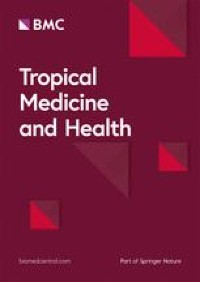June 2021
Yusuff Adebayo Adebisi, Nafisat Dasola Jimoh, Isaac Olushola Ogunkola, Theogene Uwizeyimana, Alaka Hassan Olayemi, Nelson Ashinedu Ukor & Don Eliseo Lucero-Prisno
Abstract
Antimicrobial resistance is a hidden threat lurking behind the COVID-19 pandemic which has claimed thousands of lives prior to the emergence of the global outbreak. With a pandemic on the scale of COVID-19, antimicrobial resistance has the potential to become a double-edged sword with the overuse of antibiotics having the potential of taking us back to the pre-antibiotic era.
Antimicrobial resistance is majorly attributed to widespread and unnecessary use of antibiotics, among other causes, which has facilitated the emergence and spread of resistant pathogens.
Our study aimed to conduct a rapid review of national treatment guidelines for COVID-19 in 10 African countries (Ghana, Kenya, Uganda, Nigeria, South Africa, Zimbabwe, Botswana, Liberia, Ethiopia, and Rwanda) and examined its implication for antimicrobial resistance response on the continent.
Our findings revealed that various antibiotics, such as azithromycin, doxycycline, clarithromycin, ceftriaxone, erythromycin, amoxicillin, amoxicillin-clavulanic acid, ampicillin, gentamicin, benzylpenicillin, piperacillin/tazobactam, ciprofloxacin, ceftazidime, cefepime, vancomycin, meropenem, and cefuroxime among others, were recommended for use in the management of COVID-19.
This is worrisome in that COVID-19 is a viral disease and only a few COVID-19 patients would have bacterial co-infection. Our study highlighted the need to emphasize prudent and judicious use of antibiotics in the management of COVID-19 in Africa.











